Iran Ranks Among Most Corrupt Countries In The World
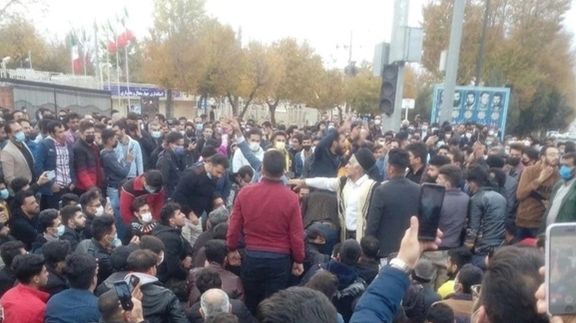
Iran ranks 150 out of 180 countries in the 2021 Corruption Perceptions Index (CPI), one stop lower than last year, which weakens its struggling economy.

Iran ranks 150 out of 180 countries in the 2021 Corruption Perceptions Index (CPI), one stop lower than last year, which weakens its struggling economy.
According to the annual list released by Transparency International on Tuesday, the Islamic Republic scored 25 on a scale of zero to 100, where zero means highly corrupt and 100 means very clean.
Each country’s score is drawn from 13 different corruption surveys and assessments by a variety of reputable institutions, including the World Bank and the World Economic Forum.
The CPI, the most widely used global corruption ranking in the world, assesses countries and territories annually on how corrupt their public sector is perceived to be by experts.
It covers manifestations of public sector corruption, including the misuse of public power for private benefit without facing consequences, bribery, diversion of public funds, nepotistic appointments, and access to information on public affairs/government activities.
In 2013, the last year of Mahmoud Ahmadinejad’s presidential tenure, Iran was 144th among 177 countries. It rose to 130 in 2017, suggesting a decline in corruption, but has dropped again since then.
Iranian authorities routinely criticize corruption in the country, with Supreme Leader Ali Khamenei having issued an anti-corruption decree, demanding the heads of the three branches of government not slacken in efforts against graft.
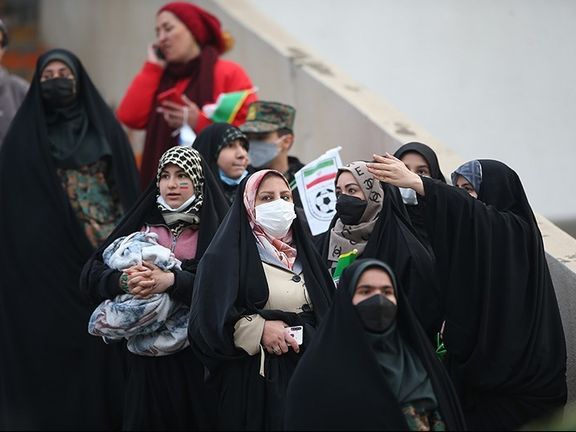
The Iranian national football team defeated Iraq to book a berth for the 2022 World Cup in front of a sparsely populated stadium and just enough women to satisfy FIFA supervisors.
With Asian qualifiers now into its final stages Iran faced Iraq at Tehran’s Azadi stadium on Thursday and won thanks to a close-range solo by Mehdi Taremi to become the first country to earn its place at the year-end tournament in Qatar.
The Islamic Republic, which has barred female spectators from stadiums for years claiming it would violate religious rules of decency, was forced by world soccer body FIFA to allow women to attend a match in 2019.
A month after the FIFA warning in September that year, Iranian women were allowed to watch a World Cup qualifying match between Iran and Cambodia.
Despite the FIFA order to allow women into stadiums without restriction and in numbers determined by demand for tickets, Iran announced 2,000 of the 10,000 tickets for the match against Iraq were exclusively reserved for women and they had to sit in segregated areas.
The number of women allowed to buy tickets was less than the match against Cambodia and there were many women who gathered outside the gates, purportedly because many of the promised seats were given to women cherry-picked by the authorities.
There were also reports that a dozen female reporters and journalists were not allowed into the stadium.
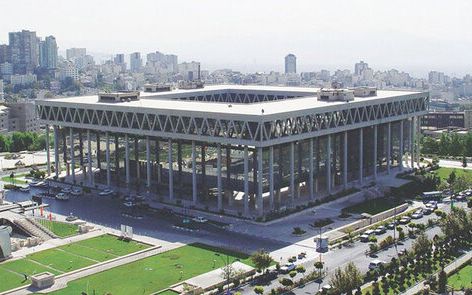
A spokesman for the Mujahedin-e Khalq (MEK) has denied any knowledge of the apparent hacking of IRIB television and radio channels Thursday.
Shahin Qobadi, an MEK spokesman in Paris, told Iran International Thursday that the group had become aware of the incident only when it happened but that the hacking might have been the work of supporters in Iran.
Iran's state media have attributed the ten-second disruption – which included pictures of the MEK leaders Massoud and Maryam Rajavi – to the MEK, using the Quranic term ‘monafeqin’ (‘hypocrites’) that officials routinely apply to the opposition group, which is based in Albania.
It is not clear whether the incident resulted from internet hacking or from manual intervention in broadcasting studios. The state broadcaster’s deputy for technology, Reza Alidadi, told the IRIB News Channel that those behind the incidents, who he called hackers, had probably accessed IRIB servers and that the “complicated attack” was being investigated.
Alidadi also suggested that countries where equipment had been made could have installed “bugs.” A source in Iran familiar with IRIB told Iran International that several employees were being questioned by security forces.
The programs of four IRIB television − including Channel One, News Channel, and the Arabic-language Al-Alam − broke off abruptly Thursday afternoon and images of the group's leaders, Massoud Rajavi and his wife Maryam Rajavi, appeared on the screens while a man's voice chanted “Salute to Rajavi, death to Khamenei.”
This was followed by a few seconds of a speech by Massoud Rajavi, who disappeared during the 2003 United States invasion of Iraq, a time when the MEK was allied to Saddam Hussein and occupied a large building in Baghdad.
The interruption also featured an image of Supreme Leader Ali Khamenei with a red cross over his face and a graphic demanding his death. The name of a social media account pointing to the MEK was shown on the screens with the images. Anti-regime, pro-MEK slogans were heard on the affected radio channels.
While Massoud Rajavi is widely thought to be dead, the MEK insists he is merely in hiding for his own security. After Saddam’s fall in 2003, MEK members were moved to Camp Ashraf north of Baghdad, which had been established in 1986 during the Iran-Iraq war. In 2013, the MEK was transferred by the US to a new compound in Albania, where it is active on social media.
The MEK, which the US listed between 1997 and 2012 as a ‘foreign terrorist organization,’ had close links to senior members of the Trump administration and to Trump allies, including John Bolton and Rudy Giuliani.
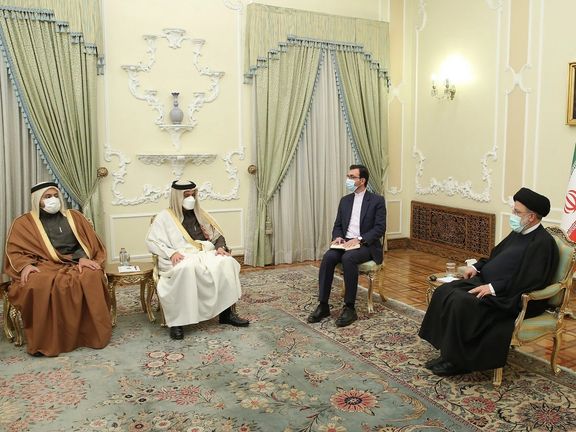
Qatar has invited Iranian President Ebrahim Raisi to attend the upcoming meeting of the Gas Exporting Countries Forum (GECF).
During Thursday’s meeting in Tehran with Iranian foreign minister Hossein Amir-Abdollahian, foreign minister Mohammed bin Abdulrahman Al-Thani delivered the Qatari Emir’s invitation. The Sixth GECF Summit of Heads of States and Governments is slated for Doha in February.
GECF, which is headquartered in Doha, is an inter-governmental organization of the world's leading gas exporters aimed at increasing coordination. Iran and Qatar share the world’s largest gas-field, with the Iranian part known as South Pars and Qatar’s as North Dome.
Earlier in the day, Iran's official news agency said Al-Thani’s visit should not be seen as facilitating direct talks with Washington, so responding to suggestions in domestic and foreign media that al-Thani aimed to thereby improve prospects for reviving the 2015 nuclear deal.
The visit took place with Emir Sheikh Tamim bin Hamad al-Thani due to meet United States President Joe Biden at the White House January 31 to discuss global energy security as well as the Vienna nuclear talks.
Washington is liaising with energy-producing states and firms over possible diversion of supplies to Europe should Russia invade Ukraine. Moscow supplies one-third of Europe’s natural gas and might stop winter deliveries if sanctioned by the US or western Europe over any action in Ukraine.
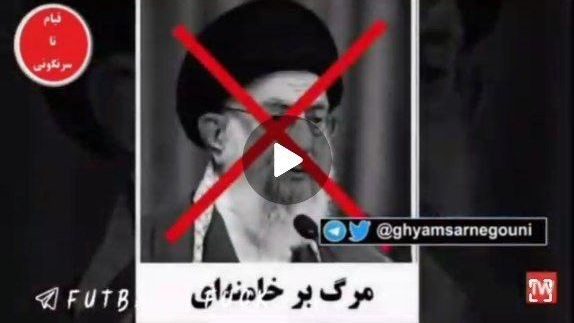
Several television and radio channels of Iran’s state broadcaster were hacked Thursday with photos of leaders of an opposition group briefly aired.
The image of Massoud and Maryam Rajavi, leaders of the Albania-based opposition Mujahideen-e Khalq (MEK), were broadcast for around 10 seconds with audio footage from one of their speeches in the background.
Massoud Rajavi disappeared during the 2003 invasion of Iraq, where the MEK was then based in alliance with Saddam Hussein, and is widely believed dead.
After the picture of the MEK leaders, the video showed a photo of Iran’s Supreme leader Ali Khamenei with a red cross on it, as an off-camera voice said, “Death to Khamenei.” It was unclear whether this was a recording of slogans chanted during protests. Khamenei was badly injured in 1981 in one of a series of bombings attributed to the MEK.
There was also a red circle on the video, which called for an uprising in Iran to overthrow the current regime. The video then cut into footage of a snowy screen disturbance that is usually aired on TV when there is a technical problem.
The first channel of the national TV and several popular radio channels as well as a website for the online streaming of IRIB channels were targets of the hack. The state broadcaster’s deputy for technology, Reza Alidadi, said the hackers probably accessed IRIB servers, adding that the “complicated attack” was under investigation.
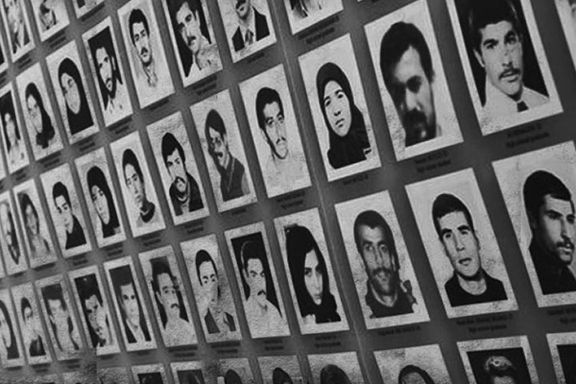
Prominent former UN officials have called for a UN investigation into the 1988 "massacre" of political prisoners in Iran, including the role of President Ebrahim Raisi, at that time.
The open letter released on Thursday, addressed to the UN human rights chief Michelle Bachelet, and seen by Reuters, was signed by some 460 people, including a former president of the International Criminal Court (ICC), Sang-Hyun Song, and Stephen Rapp, a former US ambassador for global criminal justice.
Raisi, who took office in August, is under US sanctions over a past that includes what the United States and activists say was his involvement as one of four judges who oversaw the 1988 killings. Reuters said his office in Tehran had no comment on Thursday.
Iran has never acknowledged that mass executions took place under Ayatollah Ruhollah Khomeini, the revolutionary leader who died in 1989. The victims were mostly members of the Mujahedin-e Khalq Organization (MEK) and leftist activists.
A group of UN human rights experts had issued a warning to the government of Iran in December 2020 that violations related to the massacres of political prisoners in 1988 in 32 cities may amount to crimes against humanity and that they will call for an international investigation if these violations persist. They said that covering up the crime at the present time constitutes additional violations.
Amnesty International has put the number executed at some 5,000, saying in a 2018 report that "the real number could be higher".
"The perpetrators continue to enjoy impunity. They include the current Iranian President Ebrahim Raisi and judiciary chief Gholam-Hossein Mohseni Ejei," said the open letter. Ejei succeeded Raisi as head of Iran's judiciary.
Twenty-five Nobel prize winners in a letter last September to United Nations Secretary-General Antonio Guterres had also urged the UN to set up an international commission to investigate the prison killings and particularly Raisi’s role.
Raisi, when asked about activists' allegations that he was involved in the killings, told a news conference in June 2021: "If a judge, a prosecutor has defended the security of the people, he should be praised." He added: "I am proud to have defended human rights in every position I have held so far."
The letter, organized by the British-based group Justice for Victims of the 1988 Massacre in Iran, was also sent to the UN Human Rights Council, whose 47 member states open a five-week session on February 28.
Other signatories include previous UN investigators into torture and former foreign ministers of Australia, Belgium, Canada, Italy, Kosovo and Poland.
The trial of a man arrested in Sweden for his role in the killings started last year and dozens of survivors and relatives have testified about the way prisoners were executed after summary trials.
Javaid Rehman, the UN investigator on human rights in Iran who is due to report to the session, called in an interview with Reuters last June for an independent inquiry into the allegations of state-ordered executions in 1988 and the role played by Raisi as Tehran deputy prosecutor.
Based on Reuters report